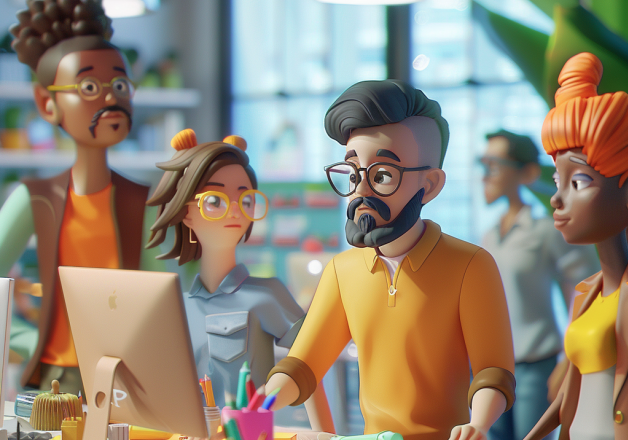In today’s fast-paced world, learning extends beyond traditional training rooms. The Social Learning Theory, initially conceptualised by psychologist Albert Bandura, illuminates how people learn from one another through observation, imitation, and modelling. This theory, particularly relevant in the modern workplace, underscores the significance of learning as a communal activity, rooted in the social context of our daily interactions.
Social Learning in the Workplace
Social learning theory posits that learning is inherently social and that we acquire new behaviours and knowledge by observing others. In the corporate realm, this translates into a myriad of practices that facilitate knowledge sharing and collaborative learning among employees. Here are practical examples of how social learning theory manifests in workplace settings....
Mentorship Programs
Mentorship is a quintessential example of social learning in action. New employees learn the ropes not just through formal training but by shadowing their more experienced colleagues. The informal conversations, the sharing of tacit knowledge, and the observation of how tasks are handled in real-time are all potent learning experiences that foster a culture of continuous improvement and adaptation.
Peer Learning Sessions
Many organisations have recognised the value of peer-to-peer learning sessions. These sessions might involve team members sharing insights from recent projects, discussing challenges, and brainstorming solutions collectively. This format not only promotes a deeper understanding of specific job roles but also strengthens team cohesion and communication skills.
Social Media and Collaboration Tools
In the digital age, social learning extends to virtual platforms. Corporate social networks like Yammer, Slack, and Microsoft Teams encourage spontaneous knowledge sharing and collaboration across departments and geographies. These tools democratise access to information, allowing employees to learn from each other asynchronously, breaking down silos that can hinder innovation.
Communities of Practice
Communities of Practice (CoPs) are groups of people who share a concern or a passion for something they do and learn how to do it better as they interact regularly. In workplaces, CoPs can be centred around specific skills, technologies, or even customer segments. These communities provide a structured way for employees to share strategies, solve problems, and disseminate best practices across the organisation.
Learning by Doing
Social learning theory also highlights the importance of learning through experience. Simulation training, for instance, allows employees to engage in real-life scenarios in a controlled environment, observing outcomes and adjusting behaviours in real-time. This method is particularly effective for training in areas such as customer service, negotiations, and emergency response procedures.
The Benefits of Social Learning in the Workplace
Implementing social learning strategies within the workplace offers numerous benefits:
- Enhanced Knowledge Retention: Learning from peers and through direct experience promotes deeper understanding and longer-lasting retention of knowledge.
- Increased Engagement: Social learning fosters a more engaging, interactive learning environment, encouraging active participation and motivation among employees.
- Faster Problem-Solving: By leveraging collective intelligence, teams can tackle challenges more effectively and innovate more rapidly.
- Cultural Transformation: Social learning can play a pivotal role in shaping corporate culture, promoting values such as openness, inclusivity, and continuous learning.
How can Learn Amp help?
.png?width=1331&height=984&name=Content%20assignement%20(1).png)
Picking a system to help you to deliver social learning can save you hours or even days. Here are some ways Learn Amp can help:
- Communities: Set up communities on Learn Amp, where learners can share posts, @mention, comment and interact. Deepen collaboration across your teams
- Experts: Connect your learners to experts for learning and mentorship opportunities. Our skills-based recommendations engine helps connect people to others who can help them to develop
- Events: Set up events that allow you to put social learning into practice and track attendance
- Exercises: Set up exercises for your learners to apply learning in the real world e.g. by recording themselves answering a customer support query
- Comms tools: Integrations with your favourite comms tools such as Slack, MS Teams, Google Meets, Zoom and more to facilitate social collaboration
- Performance tools: Make sure that what someone has learned is having the expected impact. Use our objectives tools to track progress and 1-to-1s to discuss.
Conclusion
Social Learning Theory provides a robust framework for understanding how learning occurs in social contexts, particularly within the workplace. By fostering environments that encourage observation, imitation, and modelling, organisations can unlock the full potential of their workforce, drive innovation, and maintain a competitive edge in today’s dynamic business landscape. Embracing social learning is not just about adopting new tools or programs; it’s about building a culture that values learning as a communal, ongoing process.



